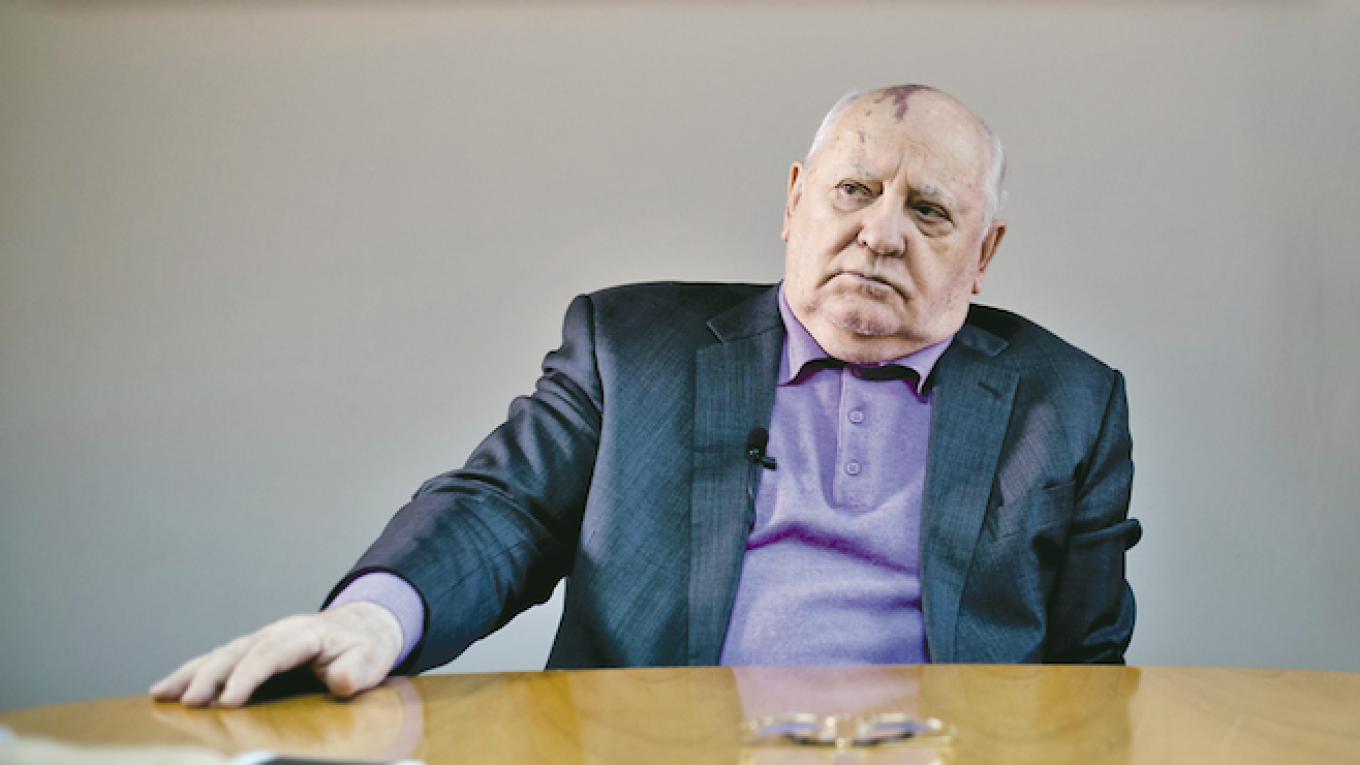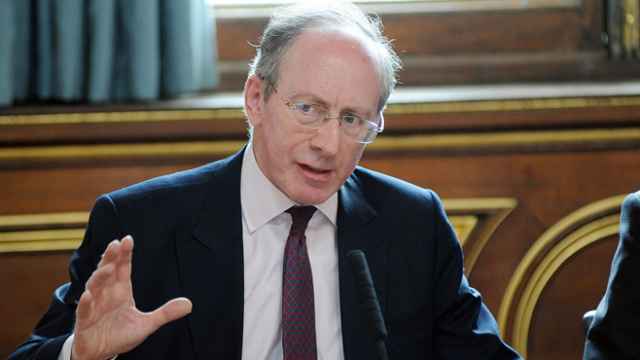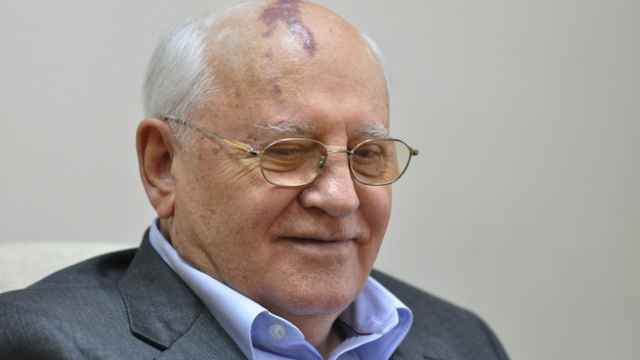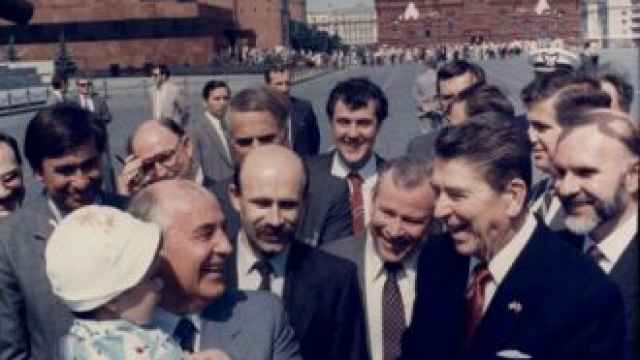Former Soviet President Mikhail Gorbachev said that his massive anti-alcohol campaign in the 1980s was too swift and sweeping, and combating heavy drinking — which remains a major problem in Russia 30 years later — should have been handled more patiently, according to a recent interview.
Speaking on the anniversary of the May 1985 start of the large-scale — and largely failed — anti-alcohol campaign, Gorbachev said that it “was after all a mistake in the form in which it was conducted,” according to an interview with daily Komsomolskaya Pravda published Thursday.
“All those excesses with shutting down [liquor] shops, especially in Moscow. Huge lines. The increase of moonshine production,” Gorbachev said, ticking off some of the side effects of his efforts. “Sugar disappeared from stores.”
Sugar is the main ingredient for moonshine production, and although owning a still was illegal in the Soviet Union, many citizens defied the ban when Gorbachev's anti-alcohol measures caused vodka to disappear from stores.
The anniversary of the campaign comes at a time when Russia's heavy drinkers once again are turning to moonshine and even cleansing products as wage cuts and price increases have made store-bought drinks pricey.
“The sobering up of society cannot be done in one swing,” Gorbachev was quoted by Komsomolskaya Pravda as saying. “It takes years. And the fight must go on incessantly, constantly.”
“We should not have shut down trade, provoking moonshine production,” he said. “Everything should have been done gradually. Not by [putting] an axe to the head.”
The campaign, which Gorbachev launched within a couple of months after coming to power in 1985 and continued for two years, did produce a number of benefits, such as a decline in mortality rates, a drop in alcohol-related accidents at factories and on the roads, an increased number of births and improvements in the health of newborns.
But the state lost 20 billion rubles, according to Komsomolskaya Pravda, by reducing down its lucrative vodka trade to a mere trickle, and the campaign was unpopular among Russian men.
“When I traveled around the country, I noticed: Women supported me everywhere, but men did the opposite,” Gorbachev said. “The picture was clear.”
Meanwhile, Soviet Cabinet head Nikolai Ryzhkov was “shedding tears — we are losing so much money,” Gorbachev told Komsomolskaya Pravda.
The displeasure both from the male population and from Kremlin insiders prompted him to wrap up the campaign, Gorbachev was quoted as saying.
In a study released this week — 30 years after the start of the campaign —the Organization for Economic Cooperation and Development said that Russia had emerged as the world's leader in alcohol-related deaths as well as in the growth of drinking rates among young people in recent years.
About 30 percent of all deaths in Russia are related to some extent to alcohol consumption, the study was quoted by media reports as saying.
A Message from The Moscow Times:
Dear readers,
We are facing unprecedented challenges. Russia's Prosecutor General's Office has designated The Moscow Times as an "undesirable" organization, criminalizing our work and putting our staff at risk of prosecution. This follows our earlier unjust labeling as a "foreign agent."
These actions are direct attempts to silence independent journalism in Russia. The authorities claim our work "discredits the decisions of the Russian leadership." We see things differently: we strive to provide accurate, unbiased reporting on Russia.
We, the journalists of The Moscow Times, refuse to be silenced. But to continue our work, we need your help.
Your support, no matter how small, makes a world of difference. If you can, please support us monthly starting from just $2. It's quick to set up, and every contribution makes a significant impact.
By supporting The Moscow Times, you're defending open, independent journalism in the face of repression. Thank you for standing with us.
Remind me later.






